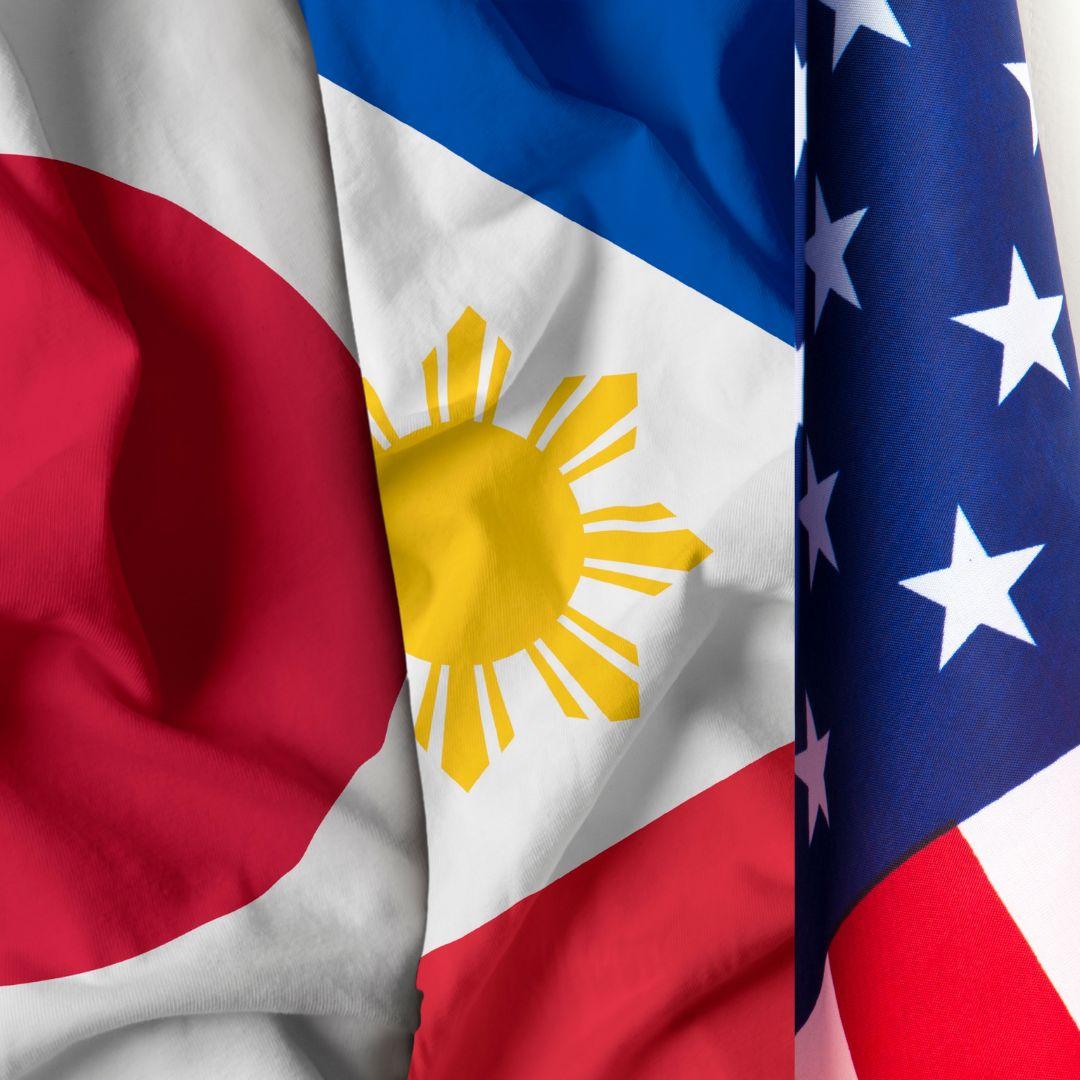Biden, Marcos, Kishida to hold April summit at White House
US President Joe Biden will host Philippine President Ferdinand Marcos Jr. and Japanese Prime Minister Kishida Fumio on April 11 at the White House for the first trilateral U.S.-Japan-Philippines leaders’ summit aimed at reaffirming their “ironclad alliance,” the White House formally announced on Tuesday. “At the summit, the leaders will advance a trilateral partnership built on deep […]


US President Joe Biden will host Philippine President Ferdinand Marcos Jr. and Japanese Prime Minister Kishida Fumio on April 11 at the White House for the first trilateral U.S.-Japan-Philippines leaders’ summit aimed at reaffirming their “ironclad alliance,” the White House formally announced on Tuesday.
“At the summit, the leaders will advance a trilateral partnership built on deep historical ties of friendship, robust and growing economic relations, a proud and resolute commitment to shared democratic values, and a shared vision for a free and open Indo-Pacific,” said White House Press Secretary Karine Jean-Pierre.
“The leaders will also reaffirm the ironclad alliances between the United States and the Philippines, and the United States and Japan.” she added.
GMA News Online first broke the report in Manila last week.
The White House announcement was made during the visit of US Secretary of State Antony Blinken to Manila as he is set to meet with Marcos and Foreign Secretary Enrique Manalo.
Japanese Foreign Minister Yoko Kamikawa was scheduled to fly to Manila from the United States to join Blinken and Manalo for a trilateral meeting ahead of the Washington summit but last-minute scheduling conflicts emerged.
Blinken’s visit to Manila is the latest by top U.S. officials this year, underscoring Washington’s high-profile support to its longtime treaty ally at a time of heightened conflicts between China and the Philippines in the West Philippine Sea, or South China Sea, particularly in the Ayungin Shoal, also known by its international name Second Thomas Shoal, and Bajo de Masinloc, also known as Scarborough Shoal.
U.S. Commerce Secretary Gina Raimondo just concluded a trip to the Philippines last week with executives of 22 American companies. She announced new trade and investments in the Philippines worth more than $1 billion. Admiral John Aquilino, the commander of the U.S. Indo-Pacific Command, also traveled to the Philippines this week.
At the summit in Washinton DC, the three leaders will also discuss trilateral cooperation “to promote inclusive economic growth and emerging technologies, advance clean energy supply chains and climate cooperation, and further peace and security in the Indo-Pacific and around the world,” the White House said.
Marcos will visit the United States from April 11 to 13. He will initially have a bilateral meeting with Biden at the White House on April 11, and then the two leaders will be joined by Kishida in a trilateral summit, also at the White House, on the same day.
‘Historic Momentum’
In his meeting with Biden, both leaders, according to the White House will “review the historic momentum in U.S.-Philippines relations and discuss efforts to expand cooperation on economic security, clean energy, people-to-people ties, and human rights and democracy.”
Biden, it added, will likewise “reaffirm the ironclad alliance between the United States and the Philippines and emphasize U.S. commitment to upholding international law and promoting a free and open Indo-Pacific.”
The US, Japan, and the Philippines have been the most vocal critics of China’s aggressive actions in the South China Sea. They have intensified their security alliances with Japan and the Philippines holding ongoing negotiations for Reciprocal Access Agreement that will allow larger numbers of Japanese Defense forces to enter the Philippines for joint training with the Armed Forces of the Philippines and to help respond to natural calamities.
In one of the alarming hostilities at the Ayungin Shoal on March 5, Chinese Coast Guard ships blocked, shadowed, and surrounded Philippine Coast Guard and supply vessels. Four Philippine Navy personnel aboard Unaizah May 4, which was carrying Western Command commander Vice Admiral Alberto Carlos, were injured after water cannon blasts from two Chinese Coast Guard ships shattered its windshields and prevented it from delivering supplies to Filipino navy personnel posted at the disputed shoal.
The Department of Foreign Affairs summoned the Chinese Embassy’s deputy ambassador to convey a strongly worded protest.
Washington immediately condemned China’s “repeated obstruction of Philippine vessels’ exercise of high-seas freedom of navigation and its disruption of supply lines to this longstanding outpost.”
“The United States reaffirms that Article IV of the 1951 U.S.-Philippines Mutual Defense Treaty extends to armed attacks on Philippine armed forces, public vessels, or aircraft – including those of its Coast Guard – anywhere in the South China Sea,” State Department spokesperson Matthew Miller said in a statement in a renewed warning to China.
Japan, which has provided about a dozen patrol ships that have helped the Philippine Coast Guard better guard its territorial interests in the South China Sea, reiterated “its serious concern over actions which increase regional tensions, including recent dangerous actions that led to collisions between Chinese and Filipino vessels and injuries of the Filipinos.”
“Japan believes that the issue concerning the South China Sea is directly related to the peace and stability of the region and is a legitimate concern of the international community,” the Ministry of Foreign Affairs in Tokyo said in a statement. “Japan opposes any unilateral attempts to change the status quo by force as well as any actions that increase tensions in the South China Sea.
Japan has its own long-running territorial disputes with China over the Senkaku islands, which the Chinese call Diaoyu. —VAL, GMA Integrated News














